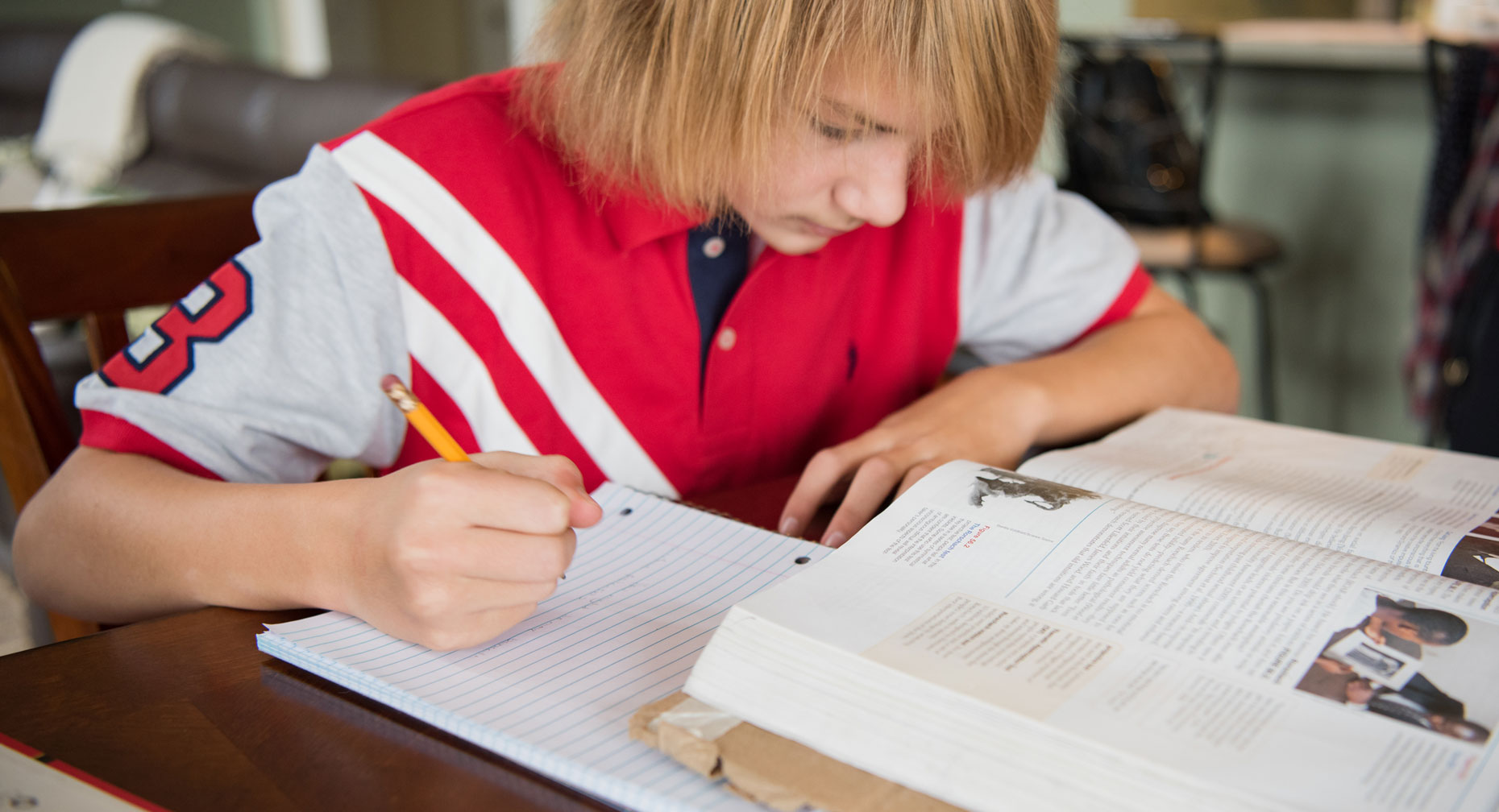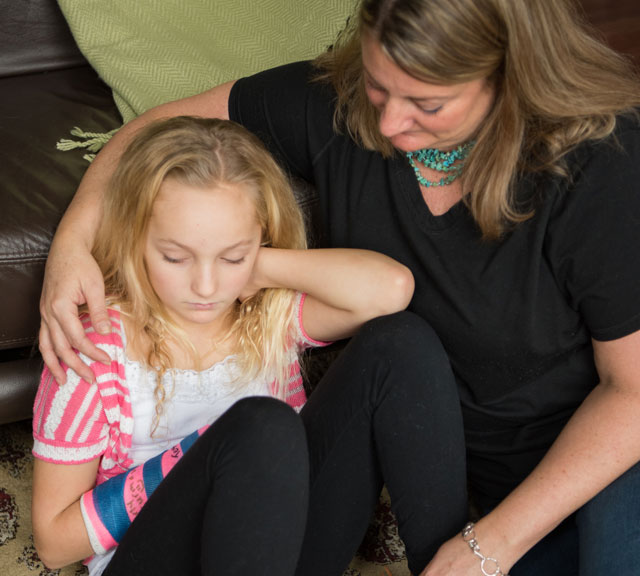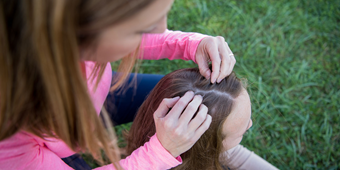Is Your Kid Stressed? What Every Parent Should Know

Answer a few questions and we'll provide you with a list of primary care providers that best fit your needs.
Grumpiness. Bedwetting. Complaints about tummy aches.
Sometimes, these are just typical, random kid problems. But at other times, they can signal something more serious, like stress.
Stress is a part of everyday life for most people, including children and teens. But how do you know when your kid is stressed, and when should you be concerned? Below, answers to your top questions about kids and stress.
What Causes Stress in Kids?
A number of things can trigger stress in kids, according to Christina Mortsolf, MS, PCC-S, program director, Young Children’s Assessment & Treatment Services (YCATS) at Samaritan Behavioral Health, Inc.
It’s how the stress impacts day-to-day functioning that we are most concerned about.
“Just ‘growing up’ can create a certain level of stress,” explains Mortsolf. She and the American Academy of Child and Adolescent Psychiatry (AACAP) say the challenges of growing up can run the gamut from the mundane to situations that can really tax a kid’s coping ability, including:
- Struggles with school work
- Too many activities
- Expectations that are too high
- Changes in their bodies
- Problems with friends and/or peers (including bullying)
- Moving or changing schools
- Family financial problems
- Unsafe living environment/neighborhood
- Separation or divorce of parents
- Chronic illness or severe problems in the family
- Death of a loved one
Mortsolf explains that these situations can create one of two kinds of stress: acute stress, which is generally short-term and caused by a one-time or limited event, and traumatic stress. Traumatic stress can be the result of more severe and possibly long-term situations, including domestic violence, abuse or neglect, death, divorce or exposure to community violence.
How Do I Know My Child Is Stressed?
Signs of stress may vary depending on age. In younger children, Mortsolf says, the symptoms may include:
- Changes in appetite
- Lack of interest in playing
- Sleep problems
- Problems focusing mentally on tasks or school work
- Anxiousness
- Nervousness
- Frequent crying
- Toileting accidents, at night or while awake
- Less self-control
- Hypervigilance (constant scanning of their environment for threats)
- Complaints about vague feelings of sickness, like bellyaches or headaches.
While adolescents may exhibit some of the behaviors above, they might also have:
- Over-reaction to seemingly minor issues
- Outbursts
- Lack of interest in social activities
- Drug or alcohol abuse.
In addition, kids experiencing traumatic stress may:
- Have flashbacks
- Appear to be in a deep haze
- Disassociate (mentally detach) from the people around them or from situations.
When Should I Be Concerned?
“There is normal everyday stress, and then there are abnormal levels of stress that can really impact functioning,” says Mortsolf. “It’s how the stress impacts day-to-day functioning that we are most concerned about.”
When your child’s stress begins to affect her ability to function at school, in the home, and in other aspects of her life, adds Mortsolf, it’s time to consider getting professional help.
In particular, seek help if she exhibits:
- A dramatic change in eating or sleeping habits
- Extreme withdrawal from family and friends
- Extreme weight loss or gain
- An extreme change in physical appearance
- Significant mood changes.
Most importantly, call 911 if your child talks about suicide or harming others.
How Do I Help My Child?
Talking with your child is usually the first step, but it’s a tricky one, says Mortsolf. “The reality is that they are not always going to tell you what’s going on,” she says, especially if you’re dealing with a teenager.
Rather than asking them point-blank, “what’s wrong,” Mortsolf suggests that you:
 Engage your child in something playful or physically enjoyable. Once they relax and start having fun, they may be more willing to open up to you.
Engage your child in something playful or physically enjoyable. Once they relax and start having fun, they may be more willing to open up to you.- Acknowledge what you’ve been seeing. “I’ve noticed that you look sad lately.”
- Keep your questions open-ended. “Is there anything I can do to help you?”
- Encourage your teenager to do some research online about stress, which will give them an opportunity to see themselves in the stories and articles.
If you know your child is stressed, the AACAP and Mortsolf offer some suggestions for stress relief. They also recommend that you adopt these practices yourself, setting a healthy example for your child:
- Exercise regularly.
- Develop healthy and regular eating habits.
- Avoid caffeine, which can increase feelings of anxiety and agitation.
- Avoid illegal drugs, alcohol and tobacco.
- Learn relaxation exercises.
- Rehearse and practice situations which cause stress. For example, take a speech class, if talking in front of people makes you anxious.
- Learn practical coping skills, like breaking a large task into smaller, more attainable tasks.
- Challenge negative thoughts with neutral or positive thoughts. "My life will never get better” can be transformed into "I may feel hopeless now, but my life will probably get better if I work at it and get some help.”
- Learn to feel good about doing a competent or "good enough” job rather than demanding perfection from yourself or others.
- Take a break. Listen to music, spend time outdoors, engage in non-competitive play and sports, draw, write, or spend time with a pet.
- Have a sanctuary (like your room) where you can escape to decompress.
When Do We Need Professional Help?
If the suggestions above don’t work, and your child continues to be stressed and isn’t functioning well at home or at school, consider making an appointment with a licensed professional counselor or therapist. This is especially important if she shows signs of depression or anxiety.
Make sure your child knows that anything she tells her therapist will be held in confidence, and won’t be shared with anyone, including you. (The only exception is if she expresses a desire to harm herself or others.) Knowing that therapy is confidential might help her feel more comfortable in opening up.
NOTE: If your child threatens suicide or to harm others, call 911 immediately.
Is It Okay to Just Watch and Wait?
If stress in your child is not addressed, it could worsen, Mortsolf says. As with physical development, there are milestones for emotional development in children and young adults, and excessive stress could result in reaching those milestones at a slower pace. She could also fall behind on academics and/or become socially withdrawn.
“Observe your child’s behavior when you think they are stressed,” she explains. “If there is no significant change in behavior, chances are that they are okay. But if you see changes or they aren’t functioning well, it’s time to see what you can do to help.”
Answer a few questions and we'll provide you with a list of primary care providers that best fit your needs.
Source: National Institutes of Health; American Psychological Association; American Association of Child and Adolescent Psychiatry; Christina Mortsolf, MS, PCC-S, Samaritan Behavioral Health





